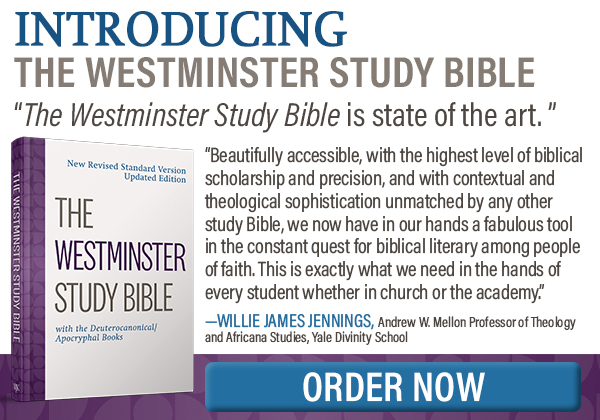 |
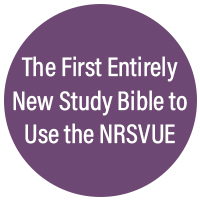 |
Based on the recently released New Revised Standard Version Updated Edition, The Westminster Study Bible (WSB) includes materials from over eighty leading biblical experts who are sensitive to how the biblical texts have been received, what their cultural and social consequences have been, and how readers might hear them now in multiple settings. |
 |
 |
|
Who Benefits from
The Westminster Study Bible?
|
|
Reading and engaging the Bible today is not as simple as discovering what it meant in its time in order to determine what it means for all time. The WSB pays close attention to the connections that preachers, leaders, church educators, and those engaging in group and personal study will find both useful and relevant.
"This is a critically important resource for God’s people to engage the Bible with our hearts open and our reason sharply tuned, that we may hear anew God’s word to us and follow Jesus in his way of love.”
—The Most Rev. Michael B. Curry,
Presiding Bishop of The Episcopal Church
"For anyone seeking a comprehensive, reliable, and enlightening resource for studying and teaching the Word of God The Westminster Study Bible is sure to enrich their biblical knowledge and deepen their spiritual growth.”
—Bishop Vashti Murphy McKenzie,
President/General Secretary, National
Council of the Churches of Christ in the USA
"This study Bible is a treasure. The materials that have been strategically compiled and expertly drafted to support text engagement are wonderful resources for the casual reader, the serious student, and the mature scholar. In my future study and work, this will be the English Bible I pull from the shelf and place on my desk. And when students, parishioners, colleagues, and friends seek a recommendation, this is the Bible to which I will refer them.”
—Brian K. Blount,
President Emeritus of Union Presbyterian Seminary |
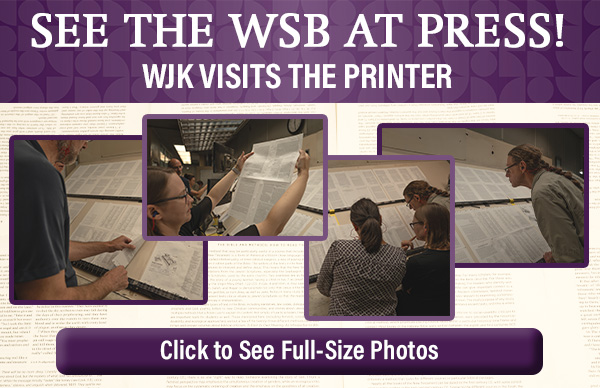 |
|
|
Features of
The Westminster Study Bible
|
Through study notes, thematic excursuses, and a range of illuminating essays, The Westminster Study Bible delves into the ancient contexts of the Bible, its continually evolving interpretations, and its contemporary reading and reception, critically exploring both the worlds of the text and the worlds of its many readers today.
|
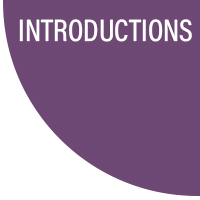 |
Introductions to biblical books orient readers to each book’s historical, cultural, and literary contexts and provide a reading guide with a general overview and outline of each book. Additional introductions to traditional groupings of books in the Jewish and Christian canons include discussions of the:
- Torah / Pentateuch
- Former Prophets / Historical Books
- Writings
- Latter Prophets / Prophetic Books
- Deuterocanonical / Apocryphal Books
- Gospels and Acts
- Pauline Letters
- Hebrews, the General Epistles,
and Revelation
|
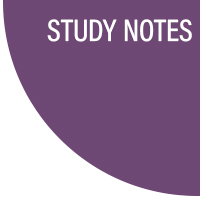 |
Study notes offer clear explanations for a variety of readers. Preachers will findgems for sermon preparation and those participating in individual or group Bible study will find a deeper
understanding of the Scriptures. |
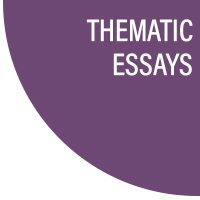 |
Fifteen thematic essays provide wide-ranging treatments of the different ways the Bible may be read and interpreted, examine aspects of the Bible’s history and its ancient contexts, explore various themes in biblical literature as they relate to contemporary concerns and issues, and show how the Bible has been received and interpreted in culture. |
 |
- The Bible as a Collection: The Making of the Biblical Canons
- The Bible and Methods: How to Read the Bible
- The Bible in Its Ancient Contexts
- The Bible in Public Life
- The Bible in Religious Interpretation and Practice
- The Bible in Global Contexts
- The Bible, Gender, and Sexuality
- The Bible, Race, and Ethnicity
- The Bible and Social Justice
- The Bible and Visual Art
- The Bible in Film and Media
- The Bible in Music
- The Bible in Literature
- The Bible in Museums
- The Bible, Science, and the Environment
|
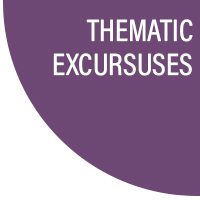 |
Nearly two hundred thematic excursuses offer more expansive discussions of important topics relating to the biblical text.
Four Types of Excursuses
Reading through Time excursuses provide a glimpse into how the interpretation of a particular text has changed through the years and across different communities of readers.
Making Connections excursuses show how the biblical text may be related to events or circumstances beyond the immediate passage at hand.
Focus On excursuses offer a more detailed consideration of a theme, concept, figure, or place that appears in a passage or across many passages.
Going Deeper excursuses provide a more thorough exploration of a topic than can be offered in the briefer study notes. |
 |
- The Curse of Canaan
- The Exodus Event
- Human Bondage in Ancient Israel
- The Divine Mandate to Exterminate the Canaanites
- Woman Wisdom
- Black and Beautiful
- Exile and Restoration Metanarratives
- Slut-Shaming as Prophetic Discourse
- Isaiah and Disability
- Feminine Imagery for God
- Healing in the Gospels and Acts
- Son of God vs. Son of Man
- Jewish Messianic Ideas
- Anti-Judaism
- Women in Luke-Acts
- LGBTQIA2+ Issues and Paul
- Frederick Douglass, Paul, and Onesimus
- Revelation in Popular Culture
|
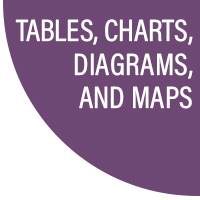 |
Tables, charts, and diagrams introduce historical timelines, rulers of ancient empires, measurements, Gospel parallels, and more. Color maps illustrate ancient Near Eastern geography, political territories, historical events, and place names across the time span of the biblical writings. |
 |
An index to the study notes, excursuses, essays, and other materials helps readers navigate the interpretive resources. |
|
Why Do We Need
The Westminster Study Bible?
|
|
The Westminster Study Bible provides up-to-date insights into the biblical texts and their ancient contexts while fostering critical thought about the important role the Bible has played throughout history and in our contemporary lives. It is a Bible for today’s readers, helping people of many backgrounds understand the different ways scholars, politicians, activists, artists, and everyday people have used and misused the Bible to support particular agendas and objectives.
"I am excited to endorse the Westminster Study Bible (WSB) as a preacher and teacher and one who loves to study the Bible. The WSB challenges one to go deeper. It also provides a fresh perspective of the ancient text through resources that illustrate how the Bible provides context and speaks to the social, political, personal and issues that people deal with in everyday life. The WSB is just what I needed in this season of life and ministry.”
—Cynthia L. Hale,
Senior Pastor, Ray of Hope Christian Church, Decatur, Georgia
|
| |
|
Get to Know the Editors
|
|
WATCH VIDEO INTERVIEWS
WITH THE GENERAL EDITORS
”This remarkable work offers extraordinary insights into the ancient contexts and contemporary interpretations of the biblical text by the world's leading scholars. The combination of intellectual rigor and accessibility makes this an invaluable resource for both academic and religious settings, enriching our understanding of the Bible and its relevance for people of faith everywhere. Its comprehensive study notes, thematic excursuses, and illuminating essays make it an essential tool for anyone seeking a deeper understanding of the Bible's enduring impact.”
—Jonathan Lee Walton,
President, Princeton Theological Seminary
|
 |
 |
Emerson B. Powery is Professor of Biblical Studies and Dean of the School of Arts, Culture, and Society at Messiah University. He is the author of Jesus Reads Scripture: The Function of Jesus’ Use of Scripture in the Synoptic Gospels and The Good Samaritan: Luke 10 for the Life of the Church; the coauthor of The Genesis of Liberation: Biblical Interpretation in the Antebellum Narratives of the Enslaved; and a contributor to and coeditor of True to Our Native Land: An African American New Testament Commentary. He also serves as the general editor for Early Christianity and Its Literature, a book series of the Society of Biblical Literature. |
 |
Stacy Davis is Professor Emerita of Religious Studies and Theology at Saint Mary’s College. She is the author of This Strange Story: Jewish and Christian Interpretation of the Curse of Canaan from Antiquity to 1865 and Haggai and Malachi in the Wisdom Commentary Series. She has contributed to Bitter the Chastening Rod: Africana Biblical Interpretation after Stony the Road We Trod in the Age of BLM, SayHerName, and MeToo as well as The Jerome Biblical Commentary for the Twenty-First Century. |
 |
Mary F. Foskett is Wake Forest Kahle Professor of Religious Studies and John Thomas Albritton Fellow at Wake Forest University. She is the author of A Virgin Conceived: Mary and Classical Representations of Virginity and Interpreting the Bible: Approaching the Text in Preparation for Preaching. She is also coeditor of Ways of Being, Ways of Reading: Asian American Biblical Interpretation; Between Experience and Interpretation: Engaging the Writings of the New Testament; and Diverse Strands of a Common Thread: An Introduction to Ethnic Chinese Biblical Interpretation. |
 |
Brent A. Strawn is D. Moody Smith Distinguished Professor of Old Testament and Professor of Law at Duke University. He is the author of numerous articles, chapters, and books, including Honest to God Preaching: Talking Sin, Suffering, and Violence; Lies My Preacher Told Me: An Honest Look at the Old Testament; The Old Testament Is Dying: A Diagnosis and Recommended Treatment; The Old Testament: A Concise Introduction; and The Incomparable God: Readings in Biblical Theology. He is coeditor of The Oxford Encyclopedia of the Bible and Law and served as both translator and member of the editorial board for The Common English Bible, as well as the book reviewer for Exodus and section review leader of the Pentateuch for the New Revised Standard Version Updated Edition. |
 |
J. Todd Hibbard, Professor of Religious Studies,
University of Detroit Mercy
Jennifer L. Koosed, Professor of Religious Studies,
Albright College
Davina C. Lopez, Professor of Religious Studies,
Eckerd College
Henry W. Morisada Rietz, Professor of Religious Studies,
Grinnell College
Claudia Setzer, Professor of Religious Studies,
Manhattan College |
 |
| |
|